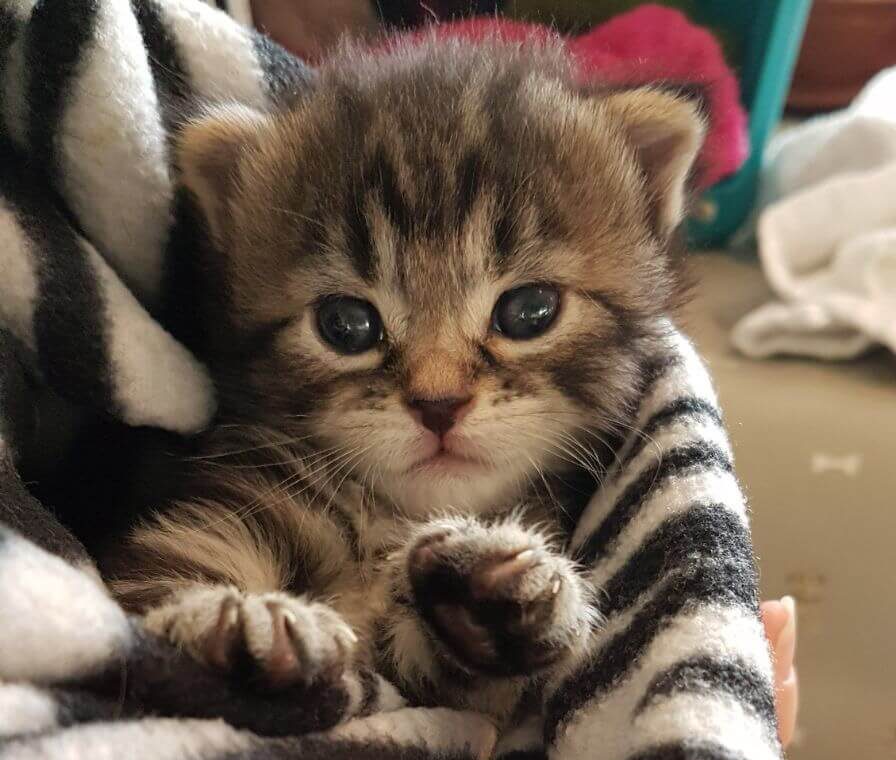Fostering an animal
Our volunteer fosterers kindly take animals – predominantly cats and kittens, but occasionally other small animals – into their homes for:
- short-term placements of typically between 1 and 6 months, while we are seeking permanent homes for them
- long-term placements for animals who are more difficult to find homes for, usually in their later years.
Short-term fostering
Animals requiring short-term fostering fall into the following categories:
- Animals needing a little additional socialisation and TLC, which is best achieved in the home environment.
- Pregnant/nursing mothers and their offspring, to give the animals care and socialisation while they are seeking a permanent home. These placements are usually for a period of up to 10 weeks.
- Occasionally, at busy times, we simply require short-term fosterers for friendly cats to make space in the Emergency Fostering Unit.
What we provide
For short-term fosterers, we provide veterinary cover, a starter pack of everything you need to get going (e.g. food and litter for a cat; small animal accommodation for other species), toys, a bed.
After this, the fosterer provides food and litter and, most importantly, the love, care and safety of a home. We will however provide any special diet food and extra kitten food for nursing mums and litters hungry kittens!
Important
You do not have to have a garden to be a short-term fosterer.
We cannot accept fosterers with children under the age of five as many of the animals requiring foster homes usually need a quieter environment. However, thank you for your interest.
Long-term fostering
Animals that require long-term foster placements are usually older and sometimes with specialist veterinary needs.
These things can sometimes make them more difficult to find a home for and so we require special fosterers to make them comfortable, whilst providing care and sometimes particular training, socialisation and observation.
By entering into a long-term fostering agreement, the branch still retains responsibility for the animal and ultimately remains the decision maker in all matters regarding the pet, as well as contributing towards veterinary treatment, which can be a great solution for someone able to provide a good home to an animal but still with the financial and practical support of the branch.

